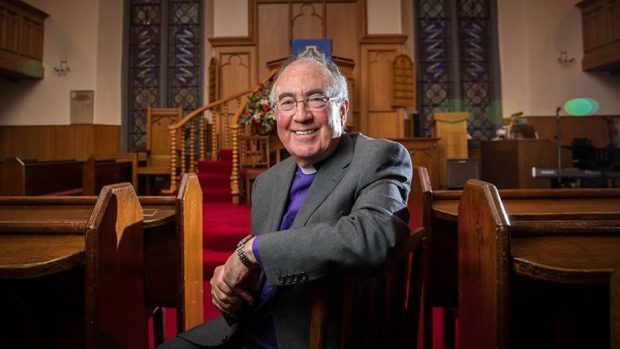MPs joined survivors of the Clydebank Blitz at a service in the Palace of Westminster yesterday to commemorate the 75th anniversary of the Luftwaffe air raids.
The special event was held in the Chapel of St Mary Undercroft, followed by a reception in the state rooms of Speaker’s House and a debate on the floor of the Commons chamber.
It was the first service held in memory of those killed and injured in the devastating two-day air raid on March 13-14, 1941.
The town suffered the most concentrated bomb damage of any part of Britain during the Second World War after the Luftwaffe attacked military targets including the John Brown shipyard and Singer sewing machine factory.
A total of 528 civilians were killed, more than 617 severely injured and all but seven out of 12,000 homes destroyed, leaving about 50,000 people homeless.
In his sermon, the moderator of the General Assembly of the Church of Scotland the Rt Rev Dr Angus Morrison, commended the resilience of the community in the attack’s aftermath, insisting its psychological impact had been the “exact opposite” of what the Nazis intended.
He said: “As in this city of London and elsewhere during the Blitz, the Luftwaffe utterly failed in its aim of destroying the spirit of the people.”
But he added: “It’s a tragedy still being relived to this day in the lives of hundreds of survivors, both in Scotland and around the world who remain haunted.”
In a call for a more peaceful world, he said: “Is it not high time for a suffering humanity to embrace another narrative altogether?”
Scottish Secretary David Mundell, northern isles MP Alistair Carmichael and SNP Westminster leader Angus Robertson were among those who attended the service organised by West Dunbartonshire MP Martin Docherty-Hughes.
He had secured special permission from John Bercow and the speaker’s chaplain to host the event, which came in the wake of a weekend of local commemorations.
Mr Mundell said: “It was a very moving service. It’s really important to remember these significant events in our history.
“I found it particularly gratifying to be able to meet some of the survivors.
“This was a really key event in the war in Scotland – many people died. We should never forget the sacrifice that civilians made.”
